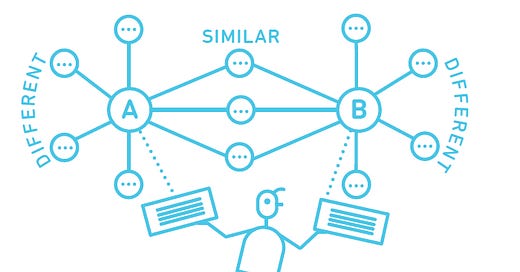TLC #012: The Science Of Learning - How To Make Meaningful Connections and Association to Improve Learning
In this edition of the Learning Chronicle newsletter, we explore the concept of Elaboration: what it is, why it's so powerful, how to use it and apply it to improve teaching and learning.
Hi,
Here is your weekly dose of the “The Learning Chronicle Newsletter” weekly curated content on how learning happens that helps you drive the achievement of personal, business, and organizational learning goals.
Welcome to all new subscribers. I am Omotayo Olorunfemi; a learning and development specialist. Check out the archive for previous editions using the first link above. Welcome!!! Once again.
Learning Quote
“Don’t let the enormity of unknowns frighten you. Start with what you do know”. - Steve Blank
Two Curated Articles
What are the implications of asking "How" and "Why" questions?
How can we help our brain to better connect new knowledge to the old knowledge we already have?
How can we draw connections between what students bring into the classroom and the new material they are learning? and
How can we make new information stick into our long-term memories?
Introducing…
Elaboration Technique.
Elaboration is the process of making meaningful connections or associations to a particular idea or concept. The process requires one to think about how ideas, concepts, experiences or prior knowledge are related to the new lesson or idea. It is a simple process that can be easily adapted across contexts and is effective for all learning levels.
This detailed article below by The Learning Agency Lab explores the concept of Elaboration; what it is, getting it right, and how it can be applied in the classroom.
SCIENCE OF LEARNING: RESEARCH MEETS PRACTICE - ELABORATION
Elaborative interrogation is a specific method of elaboration. The word interrogation means to question. So, when you use elaborative interrogation, you ask yourself questions about how and why things work, and then produce the answers to these questions.
The specific questions that you ask yourself will depend, in part, on the topics you are studying (e.g., how does x work? Why does x happen? When did x happen? What caused x? What is the result of x? and so on).
Engaging in elaborative interrogation also encourages you to think about relationships between different ideas, and understanding how two ideas are both similar to one another and how they are different from one another can improve your understanding of the material.
This in-depth article below from The Learning Scientists explores practical examples and how to study using elaboration.
Learn How to Study Using... Elaboration
One Video
This six-minute plus video below by The Learning Agency on YouTube aptly summarises the technique of elaboration.
Elaboration | How Expanding On Ideas Increases Outcomes
One Learning Question
Do I need to spend more time searching for better information or do I need to spend more time acting on the information I already have? Is the bottleneck strategy or execution? - James Clear
What We Are Reading
The E-Learning Coach on Elaboration Strategies That Benefit Learning
Dataworks on How To Learn Better
The Learning Agency on HOW TO CHECK FOR UNDERSTANDING: A GUIDE
That’s a wrap for this week.
What would you want me to write about? Tell me in the comment
Ensure that you keep learning and subscribe to this newsletter by clicking the button below:



